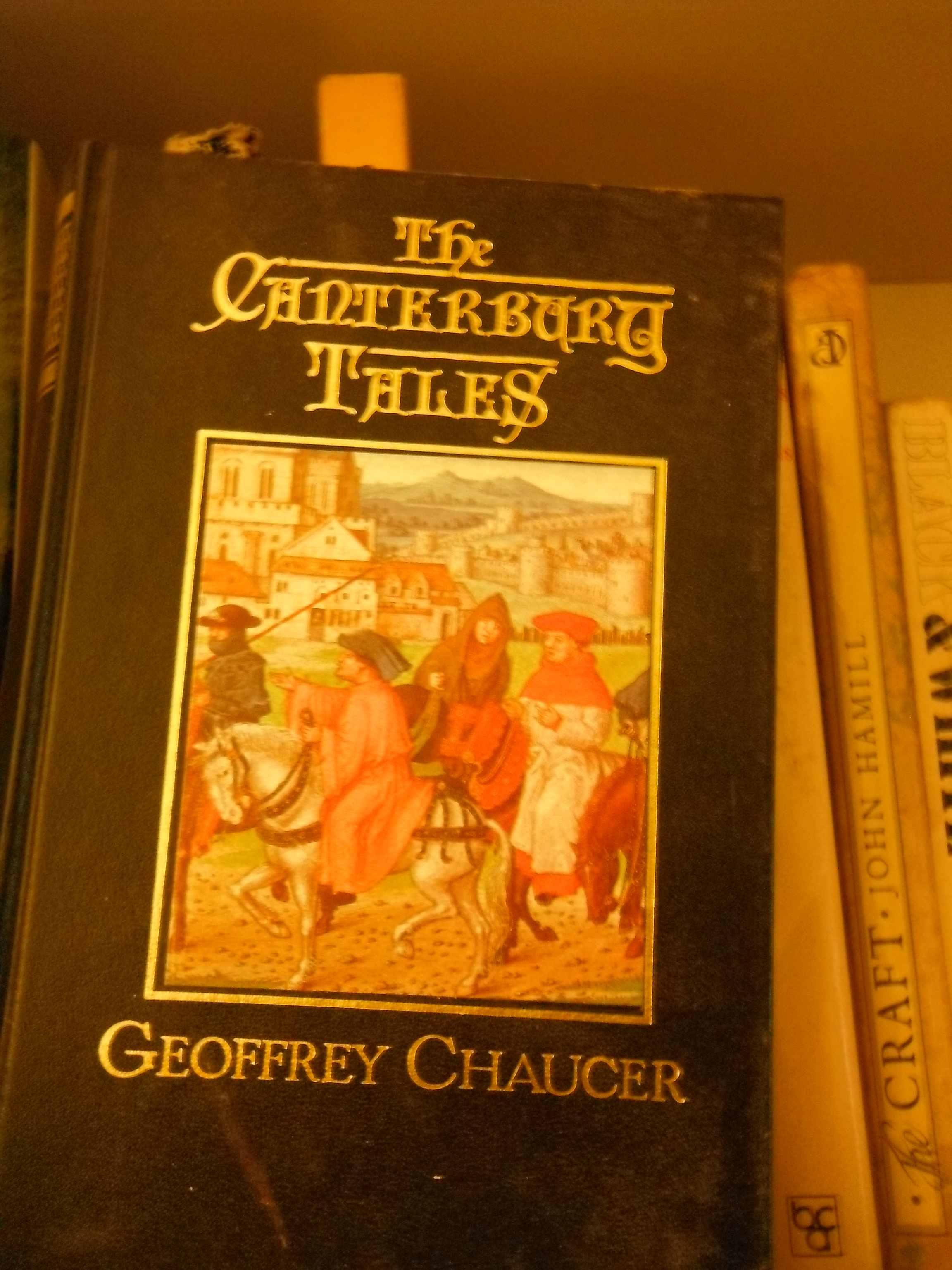Book Review - Geoffrey Chaucer – The Canterbury Tales –The Shipman’s Tale
@arthurchappell (44998)
Preston, England
January 18, 2018 6:09pm CST
Prologue
The host congratulates the Man Of Law on a dark tale told so well, and now tries to encourage the Parson to speak next, but the Shipman cuts in rudely as he has no desire to listen to a pious religious morality fable, or sermon (a surprisingly secular stance for one on a pilgrimage to the shrine of Thomas Beckett). The Shipman feels that he is strong enough in his faith as it is, and doesn’t need someone preaching to the converted. He wins permission to give his story first.
The Shipman’s Tale
The Shipman tells of a popular, generous, well-respected merchant, who has a host of friends, and a lovely wife. The merchant seems to have frequent parties and social events, but he also has one friend who seems closer than most, a young monk, who is his best friend, and who claims to all and sundry to actually be the merchant’s cousin.
When the monk is visiting the Merchant and his wife, the merchant announces that he soon has to go to France on important financial business. The Merchant goes upstairs to check his finances ready for the trip. While he is gone, his wife confides to the Monk that she is feeling suicidally depressed, due to neglect by her husband, and she asks the Monk if he can lend her one hundred franks to cheer herself up with while her husband is away. There are hints that she may also have an affair with the Monk in her husband’s absence.
The Monk says that he will do what he can to help, and unknown to the woman, he asks the Merchant for a loan of the money though he does not tell him why he wants it. The Merchant freely grants the loan, which the Monk hands to the Merchant’s wife.
Returning from France, the Merchant finds that the deal did not go as well as he had hoped, so he asks the monk to refund the loan he gave him before parting. The Monk now admits that he gave the money to the Merchant’s wife, and realizing that he has created a rift in the relationship, he leaves.
The Merchant confronts his wife, who is genuinely shocked that her money came from her husband. Unable to pay him back in money, she offers to make up for her debt through love making, and the Merchant seems happy with the arrangement. It’s a story of how love and friendship matter more than money, and a story about trust, respect and loyalty. The wife clearly needs love more than money. The Monk is a manipulative burden in the relationship, and with him gone, the Merchant now has more time to offer his wife, so the financial loan has done a huge favour to husband and wife, but in unexpected ways.
Arthur Chappell
1 person likes this
1 response
@celticeagle (170571)
• Boise, Idaho
19 Jan 18
When my mom was reading some of these to me I took it that this was some children's tales. I think I was wrong.
1 person likes this
@arthurchappell (44998)
• Preston, England
20 Jan 18
@celticeagle some of them get very dark indeed
1 person likes this
@celticeagle (170571)
• Boise, Idaho
20 Jan 18
@arthurchappell .....I recall some of the dark.
1 person likes this
@arthurchappell (44998)
• Preston, England
20 Jan 18
@celticeagle I expect to review them soon
1 person likes this






